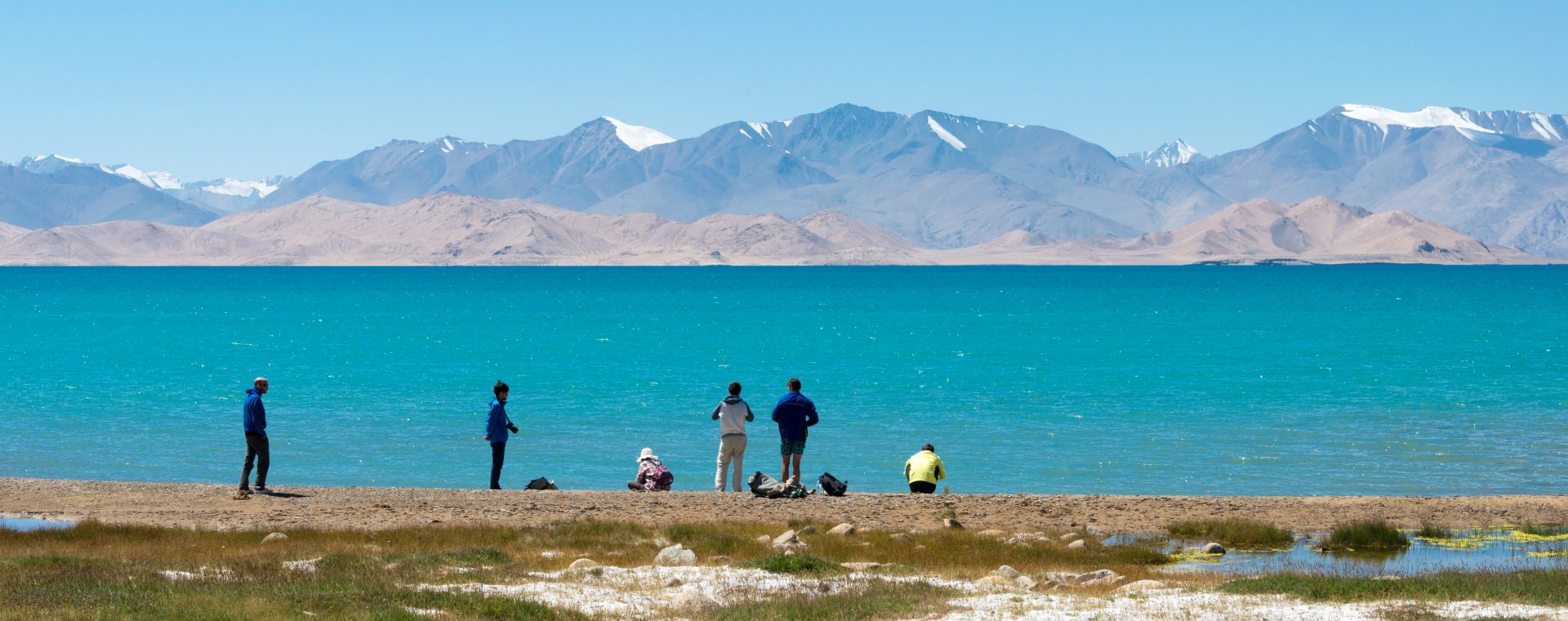17 October 2024
Climate action requires the full and meaningful participation of Indigenous people and civil society organizations, as they are most likely to be directly affected by climate change’s impacts.
In today’s blog, Timur Idrisov, senior adviser at Little Earth, an NGO based in Tajikistan and a member of the Climate Action Network in Eastern Europe, the Caucasus, and Central Asia, reflects on the current state of indigenous peoples’ participation in climate negotiations, especially in light of the upcoming COP29 in Baku, Azerbaijan.
Many rural and mountain communities in Tajikistan are already facing the consequences of global climate change and enduring its impacts. Often with scarce resources and limited knowledge to brace for projected effects and minimize their impacts, local communities can nevertheless serve as the driving force for change. However, the representation of non-governmental organizations, local communities, and Indigenous peoples from Central Asia and, in particular, Tajikistan, in international climate negotiations is minimal and far from adequate, including at COP.
To be fair, the number of different observers in the UNFCCC process, including participation in the Conference of the Parties, has been steadily growing. The increased participation of local communities, Indigenous peoples, and other groups in the UNFCCC process makes it more inclusive. Conversely, criticism persists about the inadequate representation and underprivileged voices of observers from countries in the global south. For example, at the last COP28, the number of lobbyists from the fossil fuel industry outnumbered the official representatives of Indigenous peoples by seven to one.
To my knowledge, none of the local community representatives with whom we have previously worked or where our organization currently implements projects have participated in the Conferences of the Parties to the UNFCCC.
Some of them have traditional knowledge and practices for adapting to a changing environment. Communities can provide examples of how accessible and affordable solutions and technologies help improve livelihoods and reduce pressure on ecosystems.
Furthermore, local communities commonly provide exemplary illustrations of mobilization and joint action, e.g., in the case of building public facilities such as small-scale hydropower plants or managing responses to natural disasters, where, in the absence of external aid or with limited support, people unite to help each other and collectively rebuild damaged infrastructure.
To ensure a truly open dialogue and substantial engagement of local communities and Indigenous peoples in the long term, it is vital to acknowledge that mere information sharing and consultation are insufficient.
Mechanisms and resources must be allocated to the development of engagement and participation tools, ensuring a continuous and bottom-up process.
The active engagement of local communities and other members of the public in the decision-making process offers an opportunity to strengthen the trust, sustainability, and reliability of national and international climate decisions, while also acting as a deterrent to corporate lobbying.
NGO Engagement
Non-governmental organizations have played a significant role in the UNFCCC negotiations, even if they only participate as observers. Activists exert influence on the positions of official delegates not just through lobbying efforts but also by compiling shadow reports, analyzing and distributing information, running media campaigns, and functioning as watchdogs.
Their participation helps make the negotiating process more transparent, fair, and accountable.
Non-governmental organizations and civil society networks that work closely with local communities and have the chance to participate in national, regional, and international forums play a crucial role in bringing the voices of the most vulnerable groups to decision-makers and in encouraging the international community to take more decisive and ambitious actions to address climate change.
World leaders and climate negotiators will face two challenging and tense weeks in Baku. The upcoming climate summit will take place at a time of high geopolitical tensions. In addition to conflict, the growing mistrust between developed and developing countries, alongside the worsening socio-economic situation in many countries, are pushing the climate agenda to the sidelines. Negotiation on key directions of the talks within the UNFCCC framework becomes increasingly challenging under these circumstances.
Uniting efforts, civil society should not only call for more ambitious commitments and urgent actions but also work towards strengthening trust, restoring consensus, and readiness for cooperation between countries, which is crucial for moving forward.
The fact that the COP will be the first such event on post-Soviet territory presents an excellent chance for civil activists and regional organizations to draw attention to current issues and share their own experiences and solutions with the international community.
By taking into account the needs and rights of local communities, examining their experiences and lessons learned, and involving them in decision-making, we can create more effective plans and strategies related to climate change mitigation and adaptation, as well as sustainable development in general.

